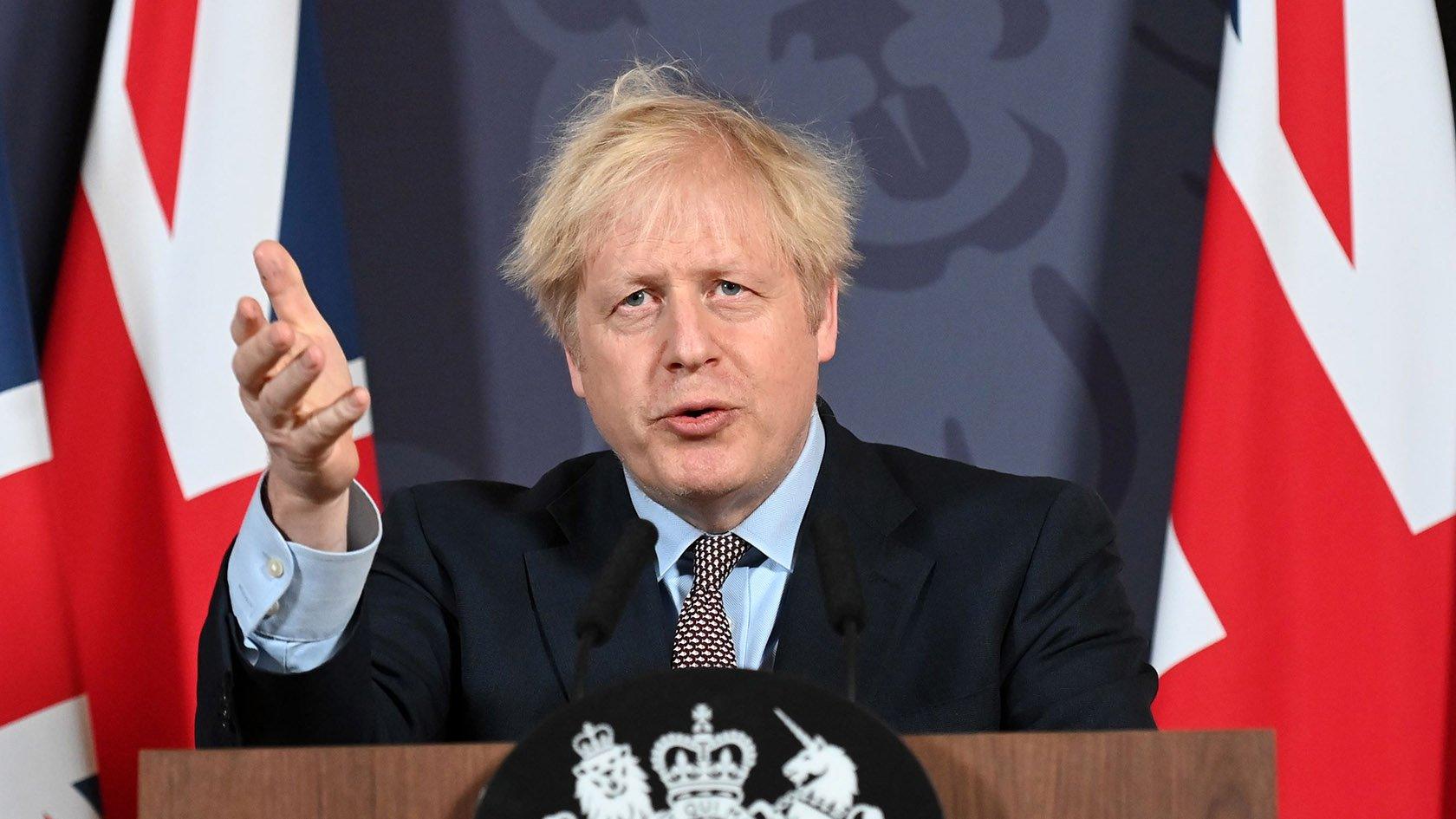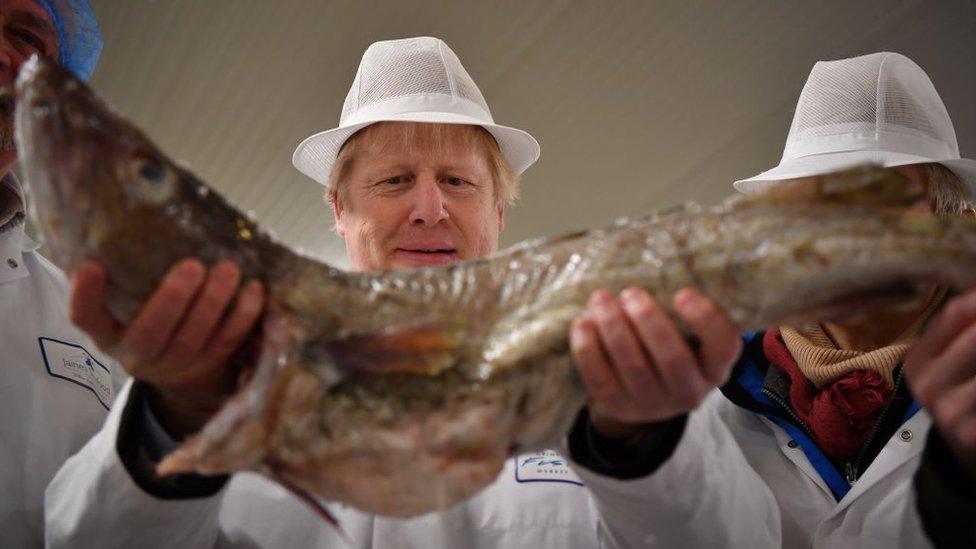Johnson gets the deal both sides wanted to achieve
- Published

1,645 days after the UK voted to leave the EU, 328 days after we actually departed, the shape of our relationship with our nearest neighbours has been drawn and agreed - only days before the status quo will disappear.
The deal that will determine how we do business with our biggest trading partner.
The deal that both sides desperately wanted to achieve.
But the deal that was not, even though political logic suggested it, inevitable.
Damage warnings
Certainly the prime minister always said he would be willing to walk away, claiming repeatedly that the UK would "prosper mightily" if there was no agreement in the end.
It is true that he and his allies sometimes scoffed at the nature of the widespread warnings about the potential damage abandoning the status quo without a deal could wreak.
It is also true that some of the positions the EU was putting forward even in the closing weeks of the talks were seen as intolerable by the UK side, which was even in some moments surprised by what appeared to be a hardening of attitudes late in the day.
But it is also true that the prime minister, the vast majority of ministers and MPs were concerned about the risk of taking a step into the unknown.
They wanted to avoid the disruption of leaving a relationship that has lasted four decades without a ready replacement.
To rip off the tentacles spread into almost every feature of how the country is run overnight could have caused major pain.
Even with a deal, changes are on the way that may not feel smooth. But a sudden no-deal departure from the EU's rules could have been a disruptive at best, disastrous at worst, for some very concerned industries, adding to the country's difficulties during a pandemic that has caused so much pain.
The 1,500 or so pages of the deal (if you're stuck for Christmas reading, there'll be plenty to keep you busy!) have not yet been published, far less has there been time to comb through the actual detail.
Commitments
In the coming days, without doubt, there will be a rhetorical bidding war over which side has given more ground, "lost" or "won".
There will have been compromises on both sides. But both the UK and the EU have put pragmatism over firm principle, and agreed an historic accord that will affect so many aspects of how we live.
Boris Johnson has so often been accused of failing to keep the promises that he has made. The details of the deal may well contain more evidence that some of his vows on Brexit will be broken.
But he has managed to keep perhaps his biggest commitment after taking us out of the European Union - securing a deal - a huge political and personal relief, perhaps, for the man whose name and reputation will be forever linked with the UK's decision to leave the EU.
Related topics
- Published30 December 2020

- Published18 December 2020

